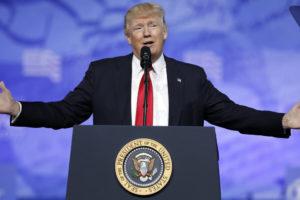President Obama and Congressional leaders announced a deal Tuesday night that will pull the economy back from the much talked about “fiscal cliff”, and across the country there has been great weeping and gnashing of teeth as a result. Compromise rarely satisfies all parties involved, but after reviewing the deal it’s overly clear that only the politicians in Washington were the real winners, and the losers will certainly be taxpayers.
Republicans and Democrats finally agreed to a deal to avert the disastrous fiscal cliff, but the “grand compromise” is mostly centered on raising taxes on high-income families, which the President defines as any individual earning more than $250,000 or married couples taking in more than $300,000.
The newly agreed upon fiscal cliff deal would hike the top income tax rate from 35 percent to 39.6 percent on any individual earning more than $400,000 or couples bringing home more than $450,000. On this point, clearly Obama and his merry band of Democrats are the winners; they have wanted the rich to pay more since the President took control of the White House in 2009.
Undoubtedly, Obama and Congressional Democrats won another round with provisions included in the tax package to limit personal exemptions and deductions for any individual earning more than $250,000 or couples with more than $300,000 in annual income. Taxpayers that fall into this category with special exemptions for children or deductions for mortgage interest and charitable donations will notice some drastic changes when they file their tax return in April.
Obama also wanted Congress to demand more revenue when an investor sells an asset for a gain. The capital gains tax rate was lowered to 15 percent when the Bush tax cuts passed. Democrats wanted the rate to go back up to 39.6 percent, which would have been a catastrophe in a weak economy that is starving for capital investment.
In addition, ObamaCare applies a 3.8 percent tax on investment income; most voters simply missed this provision when the bill passed in 2010. The fiscal cliff deal simply raises the capital gains tax rate up to 20 percent for high income families and allows the ObamaCare tax to remain in place for individuals making more than $200,000 a year and couples earning more than $250,000. House Speaker Boehner and GOP members were the winners here.
The President also proposed the tax paid on investment income rise to 39.6 percent for top income earners. In addition, Obama wanted the higher tax rate to be applied to “carried interest”, which is the income that is often paid to hedge fund and investment managers. Both measures would have generated new revenue for the Treasury, but neither measure found a place in the brokered deal. Perhaps the GOP and investors won this round.
Another point of contentious debate centered on estate taxes or also called the “death tax”, which must be paid whenever a person inherits assets. Under Bush, the death tax was suspended, so no one had to pay into the Treasury when they inherited a valuable estate. Naturally, this frustrated Democrats, because the rich could transfer assets from one generation to the next without paying a fee. Obama proposed a 45 percent death tax on any individual receiving a minimum of $3.5 million in assets from an estate. GOP leaders pushed back and the deal reinstated a 40 percent tax on estates with assets of $5 million or more. Wealthy families won this round.
Special interests were definitely not left out in the cold. The deal also includes a variety of special tax credits for the film industry, green energy companies, NASCAR, railroads, and much more. Chalk up a win for the lobbyists.
The so-called “grand compromise” did nothing to reform the antiquated tax code. No reform to entitlement programs such as Medicare, Medicaid, and Social Security – which now gobbles up a combined 60 percent of the federal budget.
No spending reform to reduce the eye popping $1.3 trillion national deficit or bend the curve on the exploding $16 trillion debt. In fact, round two of the fiscal cliff battle is fast approaching; the federal government will reach the debt limit in March and trigger automatic spending cuts that will largely hit the Defense Department. The fiscal cliff deal also fails to outline what needs to be done to contain the ever growing interest on the federal debt, currently around $250 Billion annually, and moving upwards to $400 Billion by 2020.
Not to mention, the payroll tax cut implemented with the passing of the 2009 stimulus bill was not extended, nearly 80 percent of middle-class America will see a tax increase. Households making between $40,000 and $50,000 will face an average tax increase of $579 in 2013, according to the Tax Policy Center’s analysis. Households making between $50,000 and $75,000 will face an average tax increase of $822. Ordinary taxpayers are the clear losers here.
In the end, this package adds $4 trillion to the national debt over 10-years, which equates to $41 in tax increases for every $1 in spending cuts. Obama promised on the campaign trail – $1 in tax increases for every $3 in spending cuts. Nevertheless, the fiscal cliff deal does give a sense of certainty to the markets by giving taxpayers some confidence on what to expect to pay into the Treasury by doing away with temporary Bush-era tax rates. Obama clearly owns the tax code now.
Regardless, the compromise did nothing to address long-term challenges – growing debt, anemic economic growth, and low employment. We are beyond the time for elected leaders to get more serious about these issues. If we cannot get our fiscal house in order, then critical investments into education, infrastructure, and defense will be impossible as interest on the national debt slowly crowds out other needs in the federal budget. Lawmakers must resist the urge to make these issues about politics and understand these issues are about people.
Happy New Year!




